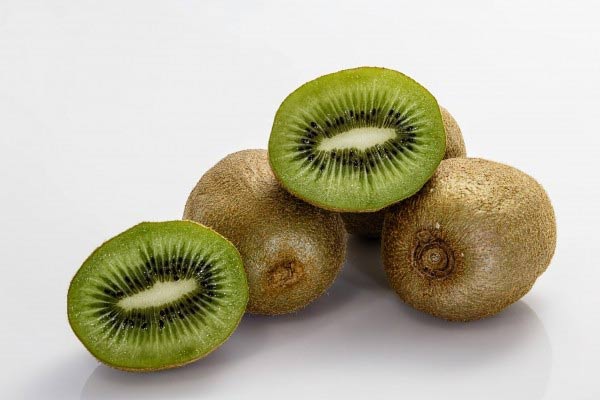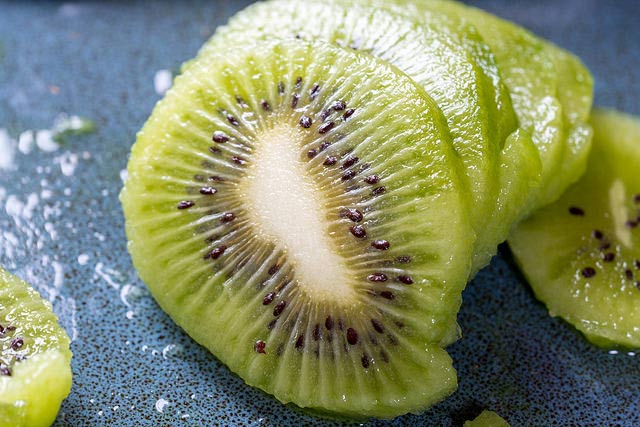
The kiwi belongs to the family Actinidiacea, genus Actinidia and the delicious Actinidia species.
The most common kiwi is oval and surrounded by a brown skin that is covered with a fibrous and dull bark. The pulp is bright green and has numerous seeds of small size and a very dark brown color. When ripe, this fruit is juicy and soft and has a very characteristic taste and smell.
The kiwi is one of the few fruits that keeps the green color when mature, because it is rich is chlorophyll.
The kiwi has a very high amount of vitamin C, almost double the amount the orange has. It also contains magnesium, which is normally a limited nutrient in the diet and so important for the cardiovascular system. In contrast, the concentration of sodium and potassium is very low. The kiwi fruit is still considered a good source of fiber and one of the few foods that combine low fat with a high concentration of vitamin E.
Health Benefits
This fruit has numerous benefits that aid digestion, help regulate blood pressure, boost immunity, help fight diabetes, among others.
People with kidney or gallbladder problems should avoid eating kiwi, because of the amount of oxalate that this fruit contains.
Origin: Portugal
Share this with your friends:

















